BeebSID - A SID chip based sound card for the BBC Micro
The BeebSID device was originally conceived by Tom Walker who approached Martin Barr (who is also responsible for the UPURS transfer suite) to build a prototype sound card device for the BBC Micro based on Commodores SID sound chip. The first prototype was put on show in May 2009 and from there, the project developed into a full hardware development to build BeebSID boards for the BBC Micro community. Originally, 25 BeebSID boards were fabricated for the community to purchase as either a fully built BeebSID or simply as the board for people to build the card themselves.
In August 2011, Phillip Harvey-Smith began the re-development of the BeebSID board making several design enhancements to improve the connectivity of the board allowing for more flexibility when choosing the power supply depending upon the type of SID chip fitted and power supply available. The new board design was completed in September 2011 with a run of 30 boards being fabricated and becoming available for purchase in early October 2011.
Building the BeebSID Mk 2.3
This is my BeebSID board as it shipped complete with the power connector fitted.
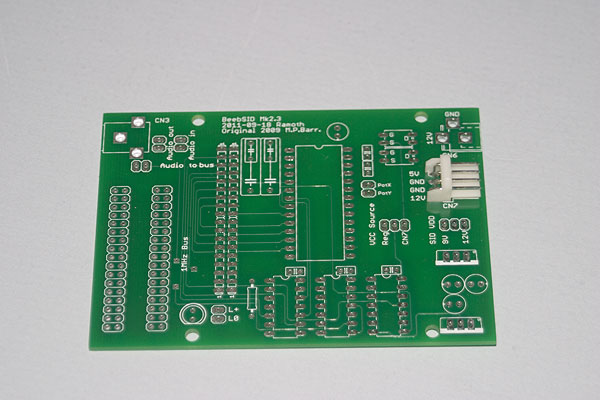
The first process in building the BeebSID is to solder in all of the sockets and connectors.
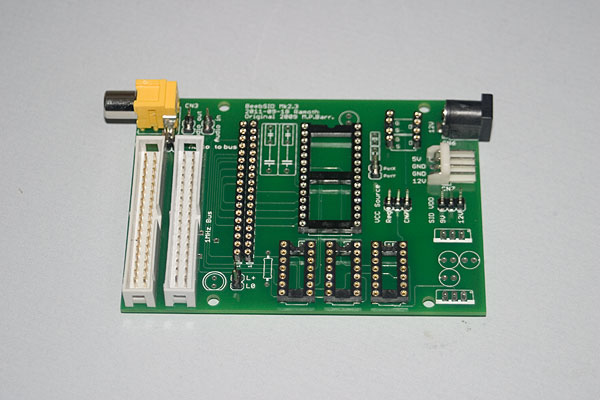
Once all the connectors are in place, the passive electronic components can then be soldered into place.
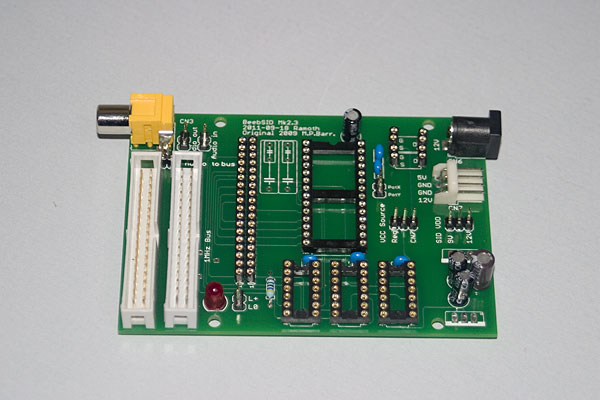
After completing the soldering of the components, the jumpers and integrated circuits (including the SID chip itself) can be installed on the board completing the build of the BeebSID board. For my particular BeebSID, the SID chip in use is the later SID 8580 which is the 9v variety as opposed to the earlier 6581 which required a 12v feed.
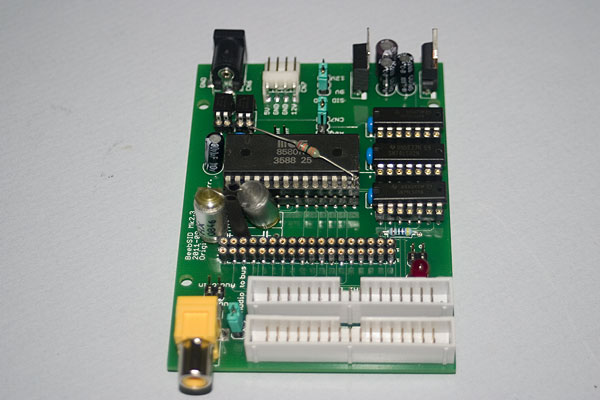
Connecting the BeebSID
The BeebSID board connects to the BBC Micro's 1MHz bus and can be daisy chained with other 1MHz bus devices. If the BeebSID is to be used as a standalone device then it requires that the two strips of SIL sockets are populated with four 9-way SIL resistor packs to act as terminators for the 1MHz bus.
The audio out can be connected via the RCA phono socket to an external amplifier or as is shown in the photo above, the "Audio to bus" jumper to the right of the RCA phono socket can be set which redirects the audio back through the 1MHz bus connection into the BBC Micro's internal audio amplifier for reproduction through the BBC Micro's internal speaker.
Using other jumpers on the board, the power feeds can be configured in several ways to cater for SID chips that require 9 or 12 volts and to either derive the 5 volts required by the TTL chips from a single 12 volt source or to use the 5 volt line on the 4 pin power connector that is commonly found on 3.5" floppy disc drives.
Beeb@30 event
This BeebSID was displayed at the official Beeb@30 birthday event held at ARM Holdings on the 25th March 2012. In the photo below, you can see Chris Turner and David Kitson discussing the BeebSID and listening to Pitfall Jones' BeebSID IX (1981 theme) music compilation.
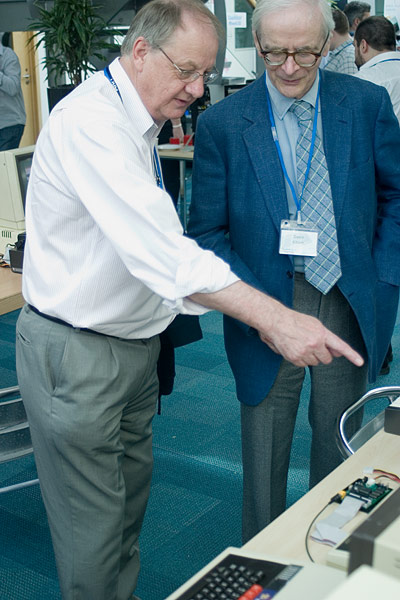
Commodore 64C donor
It's worth noting that no Commodore 64 was harmed during the building of this BeebSID board. In fact, I purchased a C64C specifically for the purpose using the SID with the BeebSID but I've ended up adding it to my collection and sharing the SID chip between it and the BeebSID. To that end, I have serviced and restored my C64C and have now swapped out the socket in which the SID resides for a higher quality turned pin variety whilst at the same time, I have mounted the SID into a turned pin socket for permanent use. That means I can swap the SID chip between the BeebSID and C64C without causing any harm to the SID chip itself.
UPDATE: In January 2012, I managed to come across an orphaned SID 8580 so I've been able to give it a new home on my BeebSID board and return my existing SID chip to the C64C on a permanent basis.
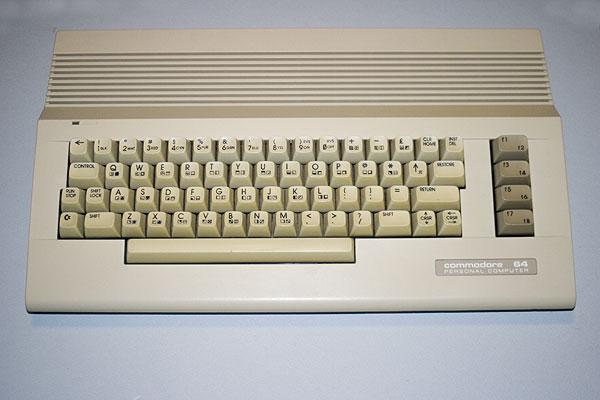
Translate this site
BeebSID resources
Acorn Kit
Commodore Kit
Stairway to Hell posts
- 8 - bit acorn hardware • Re: New 128KB model B FLASH ROM dev
- other vintage hardware, software and languages • Re: BBC Engineering Training Department Introduction to Microprocessors Part 1
- acorn & bbc micro user group (abug) events • Re: ABUG SOUTH (in person) 18 to 20 March 2022 (Tables needed)
- acorn & bbc micro user group (abug) events • Re: ABUG SOUTH (in person) 18 to 20 March 2022 (Tables needed)
- programming • Re: Cascading lines
provided courtesy of Stardot STH forums